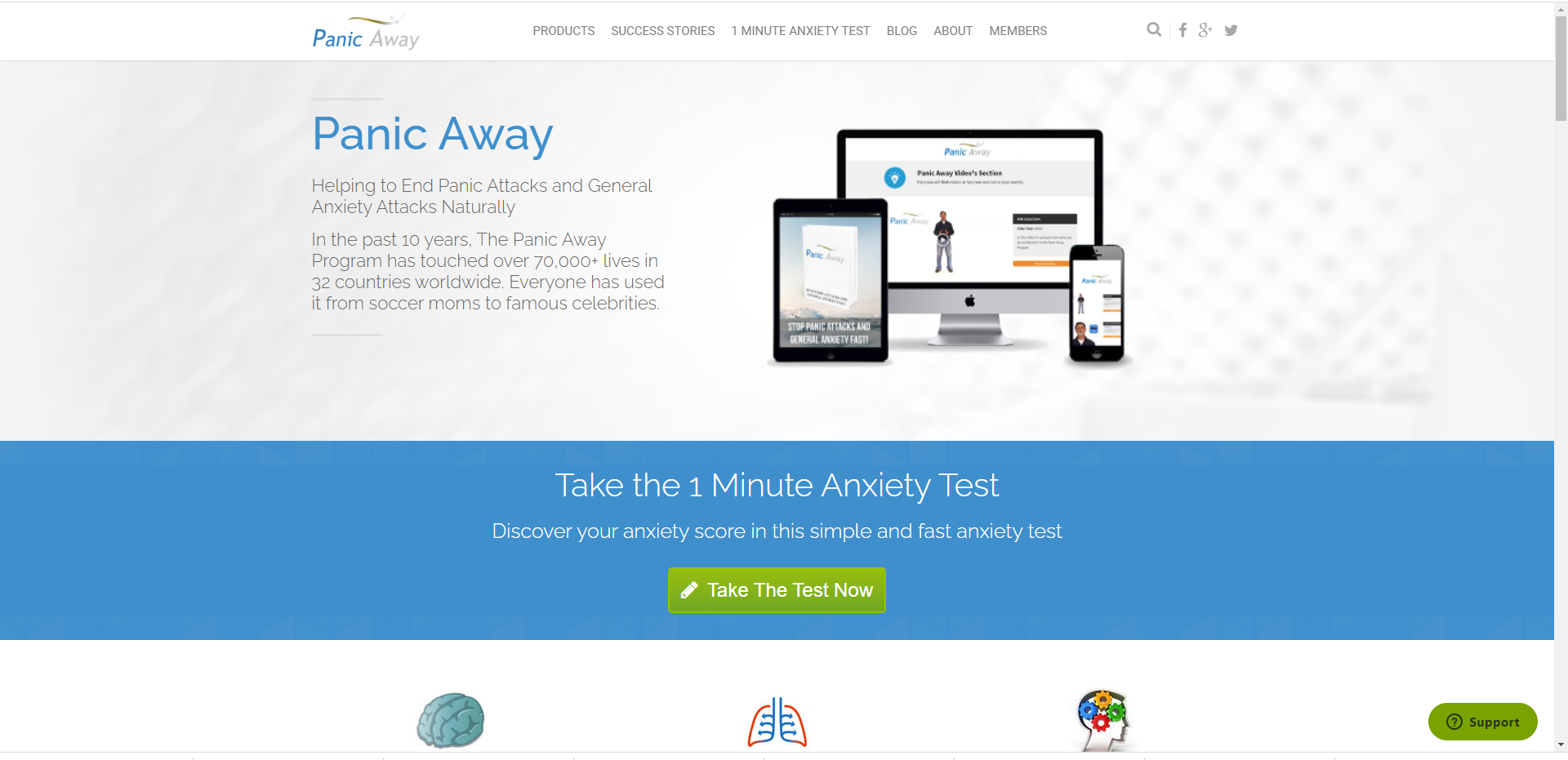
Polycystic ovary syndrome (PCOS) is a condition that affects up to one in ten women of childbearing age. In this blog post, we will discuss the most common physical and psychological symptoms of PCOS. Knowing what to look for can help you get the treatment you need and start feeling better!
Table of Contents
What is a polycystic ovarian syndrome?
Polycystic ovary syndrome (PCOS) is a condition that affects up to one in ten women of childbearing age. It is characterized by the overproduction of androgens, which can lead to irregular periods, fertility problems, and other health issues.
Although the exact cause of Polycystic ovarian syndrome is unknown, it is thought to be related to an imbalance of androgens in the body. Treatments for Polycystic ovarian syndrome can include medication to regulate hormone levels, as well as lifestyle changes such as diet and exercise. With treatment, most women with the polycystic ovarian syndrome can manage their symptoms and live healthy lives.
Who gets PCOS?
Between 5% and 10% of women between 15 and 44 have PCOS. Most pregnant women who had problems getting pregnant and went to their doctors discovered the diagnosis at age 30. PCOS is an early onset condition. Almost everyone suffers from PCOS. Your chances of developing PCOS are higher if you have obesity and your parents have PCOS.
In this blog post, we will discuss the most common physical and psychological symptoms of PCOS. Knowing what to look for can help you get the treatment you need and start feeling better!
What are the first signs of PCOS?
Menstrual Disorders
An irregular period is a menstrual disorder that refers to irregularity in the frequency, duration, or intensity of menstrual bleeding. It can be caused by various factors including endocrine disorders such as polycystic ovary syndrome, pregnancy, menopause, medications (e.g., birth control pills), and stress.
If it is due to stress, relaxation techniques may be recommended. Birth control pills can also help to regulate hormone levels and reduce irregular bleeding. Treatment for irregular periods depends on the underlying cause. If the cause is unknown or cannot be treated, then management focuses on relieving it.
One of the most common symptoms of Polycystic ovarian syndrome is irregular periods. This can mean that your periods are very light, heavy, or infrequent. You may also experience skipped periods or prolonged menstrual periods.
Why the bleeding is too heavy or too light during my menstrual cycles?
Too heavy bleeding, defined as losing more than 80ml of blood per cycle, can cause anemia and fatigue. irregular bleeding can also be a symptom of uterine cancer. If it is due to PCOS or another endocrine disorder, medications may be prescribed to regulate hormone levels.
Why do I have abnormal bleeding?
Prolonged bleeding, defined as bleeding that lasts for more than 7 days, can lead to anemia due to iron deficiency.
Infrequent bleeding, defined as bleeding occurring less than every 21 days, can cause difficulty in conceiving due to a lack of ovulation. When ovulation does occur, the eggs are not as fresh and the chance of implantation is reduced.
Use of oral contraceptive pills
Most women with PCOS have irregular periods, which means that they have fewer than eight periods in a year or more than 35 days between periods. Many women with PCOS also have heavy bleeding, which can lead to anemia. Birth control pills can help to regulate hormone levels and reduce the symptoms of PCOS, including irregular periods. However, it is important to speak with a healthcare provider before starting any new medication.
Birth control pills are often prescribed to women with PCOS to help regulate their hormones and menstrual cycles. However, that doesn’t mean the PCOS is gone. The symptoms may just be overridden by the hormones in the birth control pills. You may find that you are still experiencing irregular periods while taking birth control pills.
How does PCOS affect pregnancy?
Androgen is a hormone that plays a role in both male and female development. In men, androgen is responsible for the development of secondary sex characteristics, such as facial hair and a deep voice.
In women, androgen is involved in the development of the ovaries and Fallopian tubes. PCOS is characterized by high levels of androgen, which can lead to problems with ovulation and fertility.
Androgen may also cause the development of cysts on the ovaries. While there is no cure for PCOS, lifestyle changes and medication can help to manage the symptoms.
Can I still get pregnant if I have PCOS?
Yeah. Having PCOS means that you cannot get pregnant. PCOS is a common infertility condition that can be treated and prevented. Infertility is a problem that affects many couples who want to have children. While there are various reasons why a couple may be unable to conceive, medical science has made great strides in helping those who want to become parents.
One method of Infertility treatment is known as assisted reproductive technology (ART). This involves using medical techniques to help the egg to develop and mature so that it can be fertilized by the sperm. In some cases, this may involve using ovary regulation drugs to stimulate the production of eggs.
Once the eggs are mature, they are then surgically removed from the ovaries and fertilized in a laboratory. The resulting embryos are then implanted into the uterus, where they can grow and develop into healthy babies. While ART is not guaranteed to work for every couple, it has helped many people who otherwise would have been unable to conceive achieve their dream of becoming parents.
Treat Diabetes before getting pregnancy
If you’re overweight, losing even 5% to 10% of your weight can make you feel better. It also might help the way your medications work and improve your fertility. Your doctor may tell you to take the diabetes drug metformin (Glucophage) to lower insulin resistance, regulate ovulation, and help with weight loss. If you aren’t planning to get pregnant, your doctor might prescribe hormonal birth control, like the skin patch or the pill. These medications can help lower your risk of endometrial cancer and get your periods back on track.
Use of Ovulation Induction Agents
Ovulation induction agents are drugs that are used to stimulate ovulation in women who do not ovulate on their own. Women with PCOS seeking pregnancy will want to consider medication that includes ovulation.
The most common Ovulation induction agent is letrozole, which is a type of aromatase inhibitor. Other Ovulation induction agents include FSH, SERMS, and Clomid. These drugs work by stimulating the ovaries to produce eggs.
Ovulation induction is often used in women who have polycystic ovarian syndrome (PCOS). PCOS is a condition in which the ovaries do not ovulate on their own. Ovulation induction can also be used in women who have endometriosis or are undergoing treatment for cancer.
Ovulation induction is not without risks, and the side effects may include hot flashes, headaches, mood swings, and ovarian hyperstimulation syndrome (OHSS). Ovulation induction should only be used under the supervision of a fertility specialist. Inducing ovulation is not guaranteed to result in pregnancy, but it can greatly increase the chances of conception.
Is PCOS linked to other health problems?
Skin and Hair problems
PCOS can also cause other skin and hair problems, such as dandruff, oily skin, and patchy hair loss. Hormonal imbalances can cause breakouts, and PCOS is no exception. If you are suffering from acne, it could be a symptom of this condition. This is caused by the increased production of androgens, which can lead to the overproduction of sebum. Sebum is an oily substance that clogs pores and leads to acne.
Dark patches of skin, known as hyperpigmentation, can also be a symptom of PCOS. This is most often seen on the neck, chest, or back.
Another common symptom of PCOS is excess hair growth on the face, chest, back, or other parts of the body. This is due to the excess production of androgens, which are male hormones.
While some women with PCOS experience excess hair growth, others may notice thinning hair on their heads. This is also due to hormonal imbalances and can be a very distressing symptom.
Mental Problems
Many women with PCOS struggle with depression and anxiety. This can be due to hormonal imbalances or other symptoms of the condition.
Depression is another common symptom of PCOS. If you are struggling with depression, it is important to seek help from a mental health professional.
Headaches are another common symptom of PCOS. If you are experiencing more headaches
The hormonal imbalances caused by PCOS can also lead to mood swings and emotional changes. You may feel more anxious or depressed than usual.
Feeling tired all the time is another common symptom of PCOS. If you are constantly exhausted, even after a good night’s sleep, it could be due to this condition.
Insomnia and other sleep problems are also common in women with PCOS. This can further contribute to fatigue and make it difficult to function during the day.
If you feel you have such problems with mental fitness, here are some of the best therapy programs for you to consider. Therapy is frequently thought to be reserved for people who have apparent mental health issues. Mental health specialists, on the other hand, are trained to deal with a wide range of concerns, including relationship troubles, job advice, and major life transitions. A professional can assist you in better understanding and preparing for the obstacles you will face.
Overview of Best Therapy Programs for help in managing mental stress
1. Theraytribe

The Tribe is a free mental health support group where members may securely connect, share experiences, and advise, as part of their long-standing dedication to wellbeing. General Wellness, Depression, Anxiety, Addiction, Marriage and Family Issues, OCD, LGBT, Teens, and HIV/AIDS are among the topics covered in our online support groups. Individual Tribe members also have access to the most cutting-edge social networking technologies, which have been carefully tuned to create an encouraging atmosphere. Mood Mapping, Wellness Activities, Kudos, Rewards, Member Blogging, Private Forums, Chat Rooms, and more are just a few of our innovative wellness features.
2. Online Therapy

Online Therapy is a Cognitive Behavioral Therapy program that’s administered over the internet. The therapists are all certified. Costs range from around $32 per week to about $64 per week. With some plans, customers also get an online toolbox that includes worksheets, live chats, a messaging system where customers can chat with their therapists, a journal, an activity plan, and even yoga. Customers can post any questions they have to a certified therapist and get a response either through text or voice messages.
Use this link to get a 20% discount if you choose to sign up with a plan. Online Therapy is recommended on CBS
3. Panic Away

Panic Away is one of the most successful panic attack treatment programs on the market. They have helped over 150,000 people transform their lives. Their program is backed by a 100% no-risk guarantee including access to the Panic Away audios, videos, ebooks, and one on one personalized coaching. If you suspect you might have experienced a panic attack, follow this link for an attack and anxiety test. They also have free audio to download and paid membership for sign-up.
Weight Problems
Women with PCOS often have insulin resistance, which means their bodies overproduce insulin. This can lead to diabetes, hypertension (high blood pressure), and cardiovascular disease. PCOS can also cause women to eat unhealthy foods and gain weight. Treatment for PCOS includes lifestyle changes, such as eating a healthy diet and exercising regularly. PCOS is a serious condition that can have long-term health consequences. If you think you may have PCOS, talk to your doctor. Early diagnosis and treatment can help prevent or manage these serious health problems.
Diabetes and Polycystic ovarian syndrome
Diabetes and PCOS share many risk factors and comorbidities. Diabetes is a disease in which the body does not produce enough insulin to properly regulate blood sugar levels. PCOS is a hormonal disorder that can cause irregular periods, cysts on the ovaries, and difficulty getting pregnant.
Diabetes and PCOS are both more common in women of childbearing age, and they often co-occur. diabetes is also more common in obese women and women with a family history of diabetes. PCOS may be diagnosed when a woman has irregular periods, higher levels of androgens (male hormones), or polycystic ovaries on ultrasonography. A woman with PCOS may have any combination of these features.
The most common symptom of diabetes is increased thirst and urination. Other symptoms include fatigue, weight loss, blurred vision, and slow wound healing. If left untreated, diabetes can lead to serious health complications such as heart disease, stroke, kidney failure, amputation, and blindness. PCOS can also cause serious health problems such as infertility, gestational diabetes, type 2 diabetes, cardiovascular disease, endometrial cancer, and sleep apnea.
Women with PCOS are at risk for high blood pressure, high cholesterol, and diabetes. The good news is that there are ways to manage PCOS and diabetes. Blood pressure regulators, diuretics, and angiotensin-enzyme inhibitors can help to control blood pressure. In addition, a healthy diet and regular exercise can help to promote weight loss and improve insulin sensitivity. For women who are planning to become pregnant, folic acid supplements can help to reduce the risk of birth defects. With proper treatment, women with PCOS can lead healthy, fulfilling lives.
Impact on lifestyles
One of the most common effects of PCOS is weight gain, which can lead to several lifestyle changes. For instance, many women with PCOS find that they have to adjust their diet to maintain a healthy weight. They may need to eat more frequently or make changes to their eating habits to control their appetite. Additionally, they may need to increase their level of physical activity to burn off excess calories. The impact of PCOS on lifestyle can be significant, but there are many ways to manage the condition and live a healthy life.
The diagnosis of PCOS
Two main criteria sets are used to diagnose PCOS: the 1990 NIH criteria and the 2003 Rotterdam criteria.
The 1990 NIH criteria require that a woman have irregular menstrual periods and evidence of hyperandrogenism, while the 2003 Rotterdam criteria also include the presence of ovulatory dysfunction. To be diagnosed with PCOS using the 1990 NIH criteria, a woman must have two out of three of the following conditions: irregular menstrual periods, clinical or biochemical evidence of hyperandrogenism, and polycystic ovaries on ultrasound.
Meanwhile, the 2003 Rotterdam criteria require that a woman have at least two out of three of the following conditions: oligo- or amenorrhea, clinical or biochemical evidence of hyperandrogenism, and polycystic ovaries on ultrasound. While both sets of criteria are useful in diagnosing PCOS, the 2003 Rotterdam criteria are more inclusive and therefore considered to be the gold standard.
Treatments for PCOS
While there is no cure for PCOS, there are several medications that can help to manage the condition. Insulin sensitizers help to control blood sugar levels and improve insulin sensitivity. Hormone regulators can help to normalize hormone levels and reduce symptoms such as excess hair growth. Symptom management drugs can help to relieve symptoms such as fatigue and headaches. lipid cholesterol-lowering agents can help to lower cholesterol levels and improve heart health. Blood pressure regulators can help to keep blood pressure under control. While PCOS can be a challenging condition to manage, the right medications can help to improve symptoms and quality of life.
References:
https://www.mountsinai.org/health-library/report/menstrual-disorders
https://www.womenshealth.gov/a-z-topics/polycystic-ovary-syndrome
https://www.healthywomen.org/condition/menstrual-disorders
https://www.healthline.com/health/polycystic-ovary-disease
https://my.clevelandclinic.org/health/diseases/14633-abnormal-menstruation-periods


70 thoughts on “How to Tell if You Have Polycystic Ovary Syndrome?”